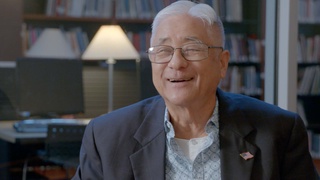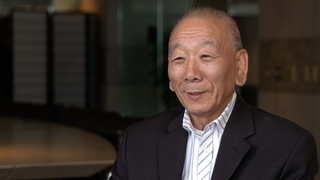Entrevistas
First impression of America (Japanese)
(Japanese) I came to America in mid-May, 1969. It was a period when we were so eager to see the world, you know, the time of hippies, and I myself left Japan for two years when I was in the third year of college. I lived in Los Angeles for a year and a half and traveled to the South Pacific and stayed in Australia for about half a year and went back to Japan, after two years of living abroad. But at that time, I was already captivated by cultures so different from Japan’s, so I soon started saving money again and came back to Los Angeles, America.
In those days, a dollar was worth 360 yen, and I was just amazed by everything I saw. For instance, when I went to supermarkets like Ralphs, just the smell of it excited me, making me go, Wow, this is amazing, and it was just an eye-opening experience for me. I came here with a tourist visa, and back then things around visas were not that complicated, and so I really wanted to come back. I went back to Japan once, saved up and came back here on a ship called Brazil-maru.
Data: August 4, 2015
Localização Geográfica: California, US
Entrevistado: Mitsue Watanabe
País: Watase Media Arts Center, Japanese American National Museum









